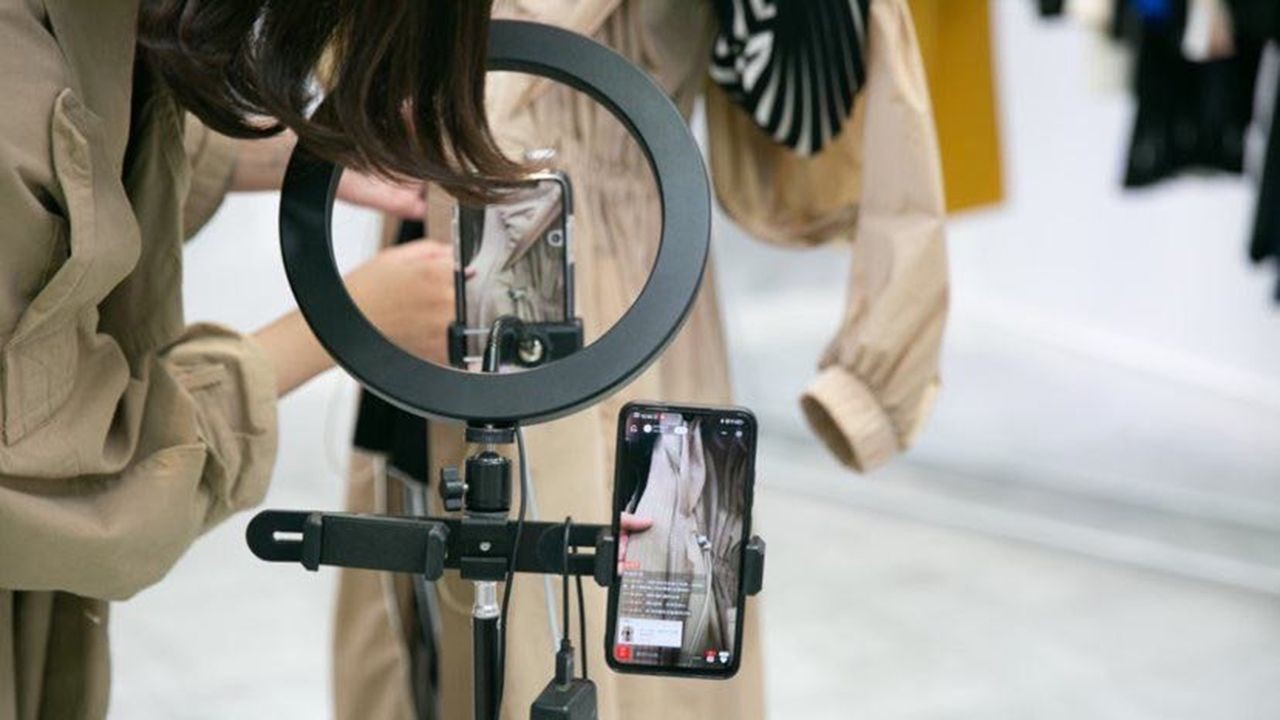Feng Chen Wang is the next fashion designer to be highlighted as part of the Jing Daily community of individuals who have helped build China’s booming luxury industry. This section profiles industry leaders who are contributing to the national and global fashion communities, from consumers and creatives to business executives and influencers.
When Feng Chen Wang established her eponymous brand in 2015, China's fashion industry was just starting to change. The mainland had begun to embrace young, independent designers and brands, and as a standout Chinese graduate studying abroad, Wang would soon benefit from her country's newfound patriotism. China suddenly saw its dynamic, young creatives as the currency that could transform its global fashion reputation, and Wang was quickly embraced by Shanghai's fashion elite. Soon after, her debut show at that city’s fashion week would catapult her to domestic stardom.
And although success had been almost guaranteed in China, Feng Chen Wang was created with a global vision. After Wang graduated from MA Fashion Menswear in London, she became one of the first Chinese females to helm a menswear brand. This cool, contemporary menswear and gender-neutral line, which was recognized for its technical precision, found fans outside of China, too — on runways in London and New York and landed collaborations with Converse and Levi’s.
Hailing from a working-class family in the Fujian province, Wang runs her label with her sister overseeing teams split across London and Shanghai. Her Chinese heritage is profoundly woven into her work, from the colors of China’s rural landscapes to its unique local crafts, adding an emotional intensity. She pays homage to her family, as well: She called her AW18 line ‘Home’ and her Spring 17 and Spring 19 shows both explored close relationships.
Like most emerging Chinese designers, Wang is uniquely aware of her position to inspire change in her homeland. Her New York Fashion Week’s Spring 18 collection featured garments emblazoned with the slogan ‘Made in China’ — an attempt to redefine the tagline for a new, less-jaded generation. Now, as the fashion industry continues to undergo a radical overhaul amid a world of uncertainty, the resourceful designer has managed to stay relevant.
At this crucial juncture, Feng Chen Wang debuted a post-pandemic collection as part of London Fashion Week’s first digital incarnation. Wang’s last collection on the London Fashion Week men’s schedule showcased a new maturity, but her latest Rework collection signals a new ethical responsibility. She spoke to Jing Daily about redesigning her signature 2-in-1 design technique for LFW, changing consumer trends in China, and life after lockdown.
Why was it important for you to take part in LFW this season?#
Well, I was thinking about making a genuine connection — not just a digital moment in time. What I’m showing in images is a real capsule, and even after LFW, I will continue this concept as a brand strategy. I think that whatever any brand can do to be shared is important to the world at this moment. I’m thankful to the BFC for organizing this during this time, and I think it’s going to be full of surprises. I really respect all the effort that has gone into this, and any brand that shares at this difficult time — whether it’s a video or some other method.
So, what is the concept behind this new Rework collection?#
This season we’ve been considering the idea of waste in the industry. While we don’t have as much physical stock as bigger brands, we are still aware of the challenging nature of the sampling process, overproduction, cancellations from wholesale partners, and having leftover garments. I know we aren't alone here — every brand is suffering from this.
So we looked at this dead stock, especially after COVID-19, and explored what we could do as a small brand to revive key collections from the past. For us, it made sense to look back at the stories behind the collections and think about how to recreate these. I selected some of my signature pieces and transformed them through my 3D draping techniques to reconstruct them in interesting ways. So much of my brand is about this duality and the idea of making one piece out of two: deconstruction and reconstruction. I think this is a way of buying something new without the need to reproduce, which can be inspirational for consumers who want to be more ethical in their choices.
How did the process work?#
Most of our stock is housed in Shanghai so there was no need for us to be delivering or moving stock around the world. And basically, it was a case of going there to choose pieces that were important to me such as AW18 or The Made in China collection, but we also had to select pieces that were plentiful and can allow us to meet orders and demand.
The great thing about this Rework Collection is that it is made to order — so reusing what already exists; we will only create what is required. If we get small orders we can make them in house but for larger orders we are also working with a manufacturer who really understands and supports this concept. It also means this particular collection had an ethical impact on our business model this season, and we really thought about price with this. Even though this process is basically twice the work and twice the design process, we were eager to keep the price point appealing for buyers. This is really what I can do as a designer to try to support the issues of environmental awareness and sustainability that are such key drivers in our industry.
As a London-based Chinese designer, how has your brand changed since COVID-19?#
Well I just returned to China at the end of March and it’s been difficult as I normally travel a lot between London and Shanghai. But now I’m here and I don't know when I can go back to London, so it’s a challenge. However, things are good now in Shanghai. It’s recovering well, and I am seeing good friends here and there. We still can’t see everyone but it’s slowly coming back to normal.
In terms of work, we are still trying to figure out some new way to work together from these different bases, but many brands are facing this. We are never going to give up on finding a way to make it work! And now despite everything, here we are, at LFW.
And after LFW, what are your thoughts on fashion in the future?#
We are all talking about this topic and I am learning from this. Fashion has changed a lot, and we are at a very important stage for the industry now and I’m thinking about this a lot, and what I can do from now to build up a better brand and share more… I think in China, consumers are slowly becoming more interested in sustainability and, as I’ve mentioned, I really want to do my part as a brand-owner on this part of the business.
Has your production been impacted in any way since COVID-19?#
The factories here are slowly picking up orders from China only but it’s still a struggle. For a designer brand like mine, the process has stayed the same, I am still on the same timeline to produce so that’s stayed quite normal. However, I do know manufacturers who have lost overseas orders and who are struggling with orders cancelled.
Have you seen any new trends in China recently?#
Well at SHFW, we joined a little section of the livestream and this is a growing trend in China. We used it as a way to introduce the brand and our products which we had already debuted in London. I didn’t do it personally, as I was on the way back to China, but it was the classic Chinese way of livestreaming, with people in front of the camera talking about products. It wasn’t a big investment for us but now lots of luxury brands are doing it in here.
But to capitalize on this you need to have a strong connection with your online store as people need to be able to buy it immediately from your store. I think it exists in China as it’s about selling and about getting closer and being more connected and interactive. People still need a real in-person experience, as the “real” is very important. If you look at your screen for eight hours a day, you want to go out and see people, and touch things, and this will come back.
Finally, anything else we can look out for in the coming months.#
Well our online sales channel is doing well — better than we expected — so we are going to have a second launch in July, along with a push with our newly launched WeChat store in China which we announced a month ago. Feng Chen Wang is an international brand and we have fans all over the world and our future will be connecting with them as much as possible.

